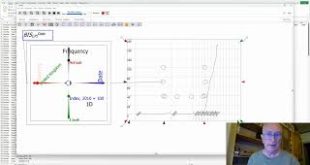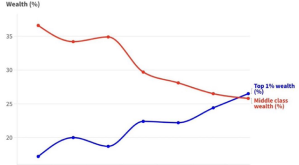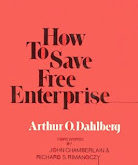The famous investment advice from Nathan Rothchild. 
Read More »Blog Archives
Proud father (personal)
My youngest daughter, after a couple of years of tough studies and hard work, last week succeeded in getting into her highly sought-after program. You never gave up. You never gave in. Congratulations, Linnea! [embedded content]
Read More »Ravel Teaser before tomorrow’s live stream
I'm giving a live demo of Ravel tomorrow (Tuesday July 16th) at 6pm London time. This is a quick teaser to show what Ravel can do. Whether you use spreadsheets, Pivot Tables, Business Intelligence programs (Tableau, PowerBI) or programming languages (Python, R) at present, you owe it to yourself to see how much easier it is to analyse data using Ravel. Go to https://www.youtube.com/live/MbIl-WWrq4k?si=6qqG5NeWntCcBc0d and click "Notify Me" to get a reminder when the live stream...
Read More »Monday Message Board
Another Monday Message Board. Post comments on any topic. Civil discussion and no coarse language please. Side discussions and idees fixes to the sandpits, please. I’m now using Substack as a blogging platform, and for my monthly email newsletter. For the moment, I’ll post both at this blog and on Substack. You can also follow me on Mastodon here. Share this:Like Loading...
Read More »Kraftwerk
.[embedded content]
Read More »U.S. Top 1% now have more wealth than the middle class
Is The Labor Theory Of Value Compatible With Automation?
[embedded content]Automation Of Chinese Ports With automation, many processes for production and distribution now execute with minimal human oversight. How can the labor theory of value, as in volume 1 of Capital, be compatible with this? Marx has some comments on this subject in the Grundrisse: The exchange of living labour for objectified labour – i.e. the positing of social labour in the form of the contradiction of capital and wage labour – is the ultimate development of the...
Read More »Marx’s Capital, Volume 3, Chapter 10: A Critical Summary
Chapter 10 of volume 3 of Capital is called “Equalization of the General Rate of Profit through Competition. Market Prices and Market Values. Surplus Profit,” and it discusses the equalization of profit rate and the formation of prices of production. Brewer (1984: 139) argues that the chapter in the manuscript used by Engels was in the form of a “a preliminary draft rather than a polished final version,” which is certainly evident when you read the chapter. Marx begins by noting that some...
Read More »Financial economics — science or chance?
Financial economics — science or chance? Those of us who occasionally follow stock markets worldwide are usually well aware of the fact that ‘winners’ in these markets are largely the result of the harvest of chance. Occasionally, however, one hears so-called day traders express the view that it surely cannot be a question of pure luck that some stock traders consistently make winning transactions in the market. To test the sustainability of these...
Read More »How To Save Free Enterprise
Who doesn't want to save free enterprise? In 1974 alone there were two books published with the title, How to Save Free Enterprise. One of them had the subtitle, "from BUREAUCRATS, AUTOCRATS, AND TECHNOCRATS." The other one, by Arthur O. Dahlberg, had no subtitle. Implicitly, then, "from ITSELF."1974 was the high water mark for How to Save Free Enterprise books. There were none published in any other year, although the idea of saving free enterprise had its heyday in the 1940s. The...
Read More » Heterodox
Heterodox





